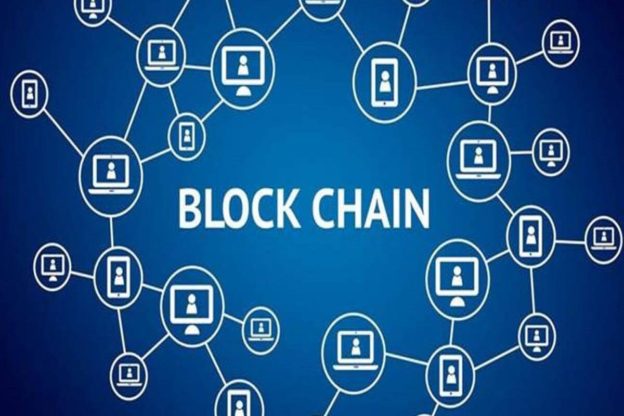Technology terms can be intimidating, often confusing. More so, for something, that is at an early stage of development and adoption. This is true about the distributed ledger technology, blockchain – which explains why there is still some confusion amongst few stakeholders.
Technology terms can be intimidating, often confusing. More so, for something, that is at an early stage of development and adoption. This is true about the distributed ledger technology, blockchain – which explains why there is still some confusion amongst few stakeholders.
The biggest myth is that blockchain is cryptocurrency. It is not – crypto applications such as bitcoin are built on top of blockchain networks. Another myth is that it promotes anonymity and hence it is difficult to regulate, particularly by governments. Whereas a blockchain network can be permissioned, or be permission-less and it can be accessible to the public or a consortium. Lastly, many believe that blockchain does not scale while continuous improvements are happening to different blockchain fabrics such as Hyperledger Fabric, an open modular blockchain framework that is fast becoming a de-facto standard for enterprise blockchain platforms.
So while the jury is still out on what blockchain can or cannot do – we, in our experience, have seen it add tremendous value for several sections of our society including businesses and governments.
Blockchain can transform private and government sectors
For businesses, enterprise-grade secure blockchain networks are now available that can be integrated and utilized for enterprise-level organizational demands while scaling rapidly. With blockchain, businesses can reduce operational costs, build more efficient processes, put in place new financial and compliance models and improve collaboration.
We have seen the positive impact of blockchain on businesses as well as communities first hand when it is wielded effectively. A great instance of this is when the Telecom Regulatory Authority of India (TRAI) updated regulations to curb unsolicited commercial communication to nearly 1.2 billion subscribers, who had no way of opting out or protecting their data from telemarketers. To solve this problem more effectively, there was a close collaboration between TRAI and Indian telecom & technology companies on the development and deployment of a blockchain solution to curtail spam.
Another area where we have seen blockchain being used effectively on a global level is food trust, which connects participants across the food supply through a permissioned, permanent and shared record of food system data. Leading food manufacturers including Nestle, Walmart, Unilever use the platform to track products across the value chain from farm to fork and meet the required regulatory and food certification guidelines.
For governments, blockchain can potentially revolutionize interactions with their departments and businesses and citizens on an unprecedented scale; it can empower them to deliver new services to citizens under Digital India and bring about trust and transparency. Today, many use cases are emerging for deploying blockchain by governments.
Evolving use cases for governments
The policy think tank of the Government of India, NITI Aayog, in a discussion paper has recommended using blockchain solutions for procurement by government agencies. By using blockchain, they can ensure greater accountability, quality control across supply chains and decentralization of authority in decision-making, it said. Few state governments in India are actively considering deploying blockchain networks for collecting excise duty on liquor to bring efficiencies and increase revenues. Some government agencies are also mulling using blockchain to maintain land records.
Already, the state government of Tamil Nadu is building a blockchain backbone as a single platform for all its departments to develop and deploy blockchain applications that will reimagine e-governance. After implementing four pilot e-governance projects in the departments of health, transport, agriculture and finance based on blockchain, the Maharashtra government is working on a ‘State Blockchain Policy’. The state government of Telangana has been evaluating the adoption of blockchain to monitor the supply and quality of seeds as well as in the voting process.
More recently, in a move that could potentially lead to the creation of ‘India Ledger’, the Government of India in its draft National Strategy on Blockchain, envisioned adding a blockchain infrastructure to the IndiaStack. A blockchain infrastructure built by the government can lead to mass deployment of the blockchain platform by developers to build applications that can solve many of India’s hard problems in the way that the Unified Payment Interface did.
Apart from the initiatives under consideration, the government departments in India can look to emulate successful global use cases. For instance, the Massachusetts Institute of Technology’s Digital Credentials Consortium, which is a global network of universities that share a blockchain-based system for digital academic credentials, making an educational background check just a matter of a click. Then there is IBM’s Digital Health Pass, a digital wallet powered by blockchain that allows governments and businesses to verify the health credentials of various segments of people – fliers, tourists or employees. In March this year, the State of New York initiated a pilot project based on this solution to enable New York residents a simple way of showing proof of a negative COVID-19 test result or a vaccine certificate.
In conclusion, enterprises around the world are leveraging the power of blockchain to redefine their industries through trust, transparency and collaboration. Blockchain also has the potential to become a transformative force across multiple functions of governance. However, all stakeholders must build an understanding of the technology so they can reap its immense benefits and transform governance. It is also imperative for the establishment of a strong public – private ecosystem that can come together to build, operate, govern and grow blockchain solutions for the benefit of the nation. The possibilities are truly endless.
https://cio.economictimes.indiatimes.com/news/next-gen-technologies/unleashing-transformation-with-blockchain/84627145





